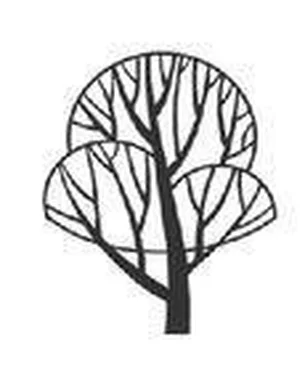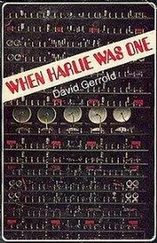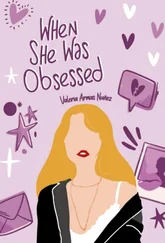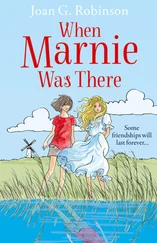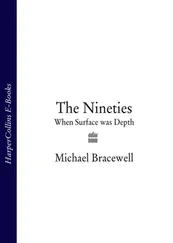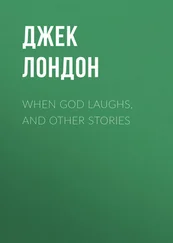Winman, Sarah - When God Was a Rabbit
Здесь есть возможность читать онлайн «Winman, Sarah - When God Was a Rabbit» весь текст электронной книги совершенно бесплатно (целиком полную версию без сокращений). В некоторых случаях можно слушать аудио, скачать через торрент в формате fb2 и присутствует краткое содержание. Жанр: Старинная литература, на английском языке. Описание произведения, (предисловие) а так же отзывы посетителей доступны на портале библиотеки ЛибКат.
- Название:When God Was a Rabbit
- Автор:
- Жанр:
- Год:неизвестен
- ISBN:нет данных
- Рейтинг книги:4 / 5. Голосов: 1
-
Избранное:Добавить в избранное
- Отзывы:
-
Ваша оценка:
- 80
- 1
- 2
- 3
- 4
- 5
When God Was a Rabbit: краткое содержание, описание и аннотация
Предлагаем к чтению аннотацию, описание, краткое содержание или предисловие (зависит от того, что написал сам автор книги «When God Was a Rabbit»). Если вы не нашли необходимую информацию о книге — напишите в комментариях, мы постараемся отыскать её.
When God Was a Rabbit — читать онлайн бесплатно полную книгу (весь текст) целиком
Ниже представлен текст книги, разбитый по страницам. Система сохранения места последней прочитанной страницы, позволяет с удобством читать онлайн бесплатно книгу «When God Was a Rabbit», без необходимости каждый раз заново искать на чём Вы остановились. Поставьте закладку, и сможете в любой момент перейти на страницу, на которой закончили чтение.
Интервал:
Закладка:
The football pools rapidly became my father’s lifeline – or obsession – and a win had become so necessary to his existence that some mornings he convinced himself it had happened already. He’d sit at the breakfast table and point to a magazine and say, What house shall we buy today? This one or this one? And I’d look at this deluded man masquerading as my father and quietly reach for the toast. He’d never been bothered by money before and probably wasn’t then, but the winning had become a test of faith. He simply needed proof that he was still a lucky man.
I chose the same numbers every week: my birthday, Jenny Penny’s birthday and Christmas Day – days that were important to me. My brother never went for numbers, rather closed his eyes and allowed his pencil to hover over the grid and to move across the teams like a cup in a séance. He believed he was touched by the god of fortune or some other such notary, and that was what made him different. I said what made him different were ‘those shoes’ he secretly wore at night.
My mother on the other hand, chose anything. ‘Let me have a look,’ she used to say and I would sigh because she didn’t have a method and when she said, ‘Let me have a look,’ I knew she was being random, and such randomness annoyed me; it was like someone carelessly colouring in an orange using only a blue pen. I was convinced that’s why we never won and never would win, but my father still ticked the box that said No publicity , and placed it on the mantelpiece with the exact change to await its midweek collection. And as he did he left with it his pledge: Come Saturday our life will change.
That Saturday we waited for our life to change on the touchline of a rugby pitch, which seemed as good a place to be as any. It happened to be my brother’s first rugby match, this boy whose idea of a contact sport had previously only been conkers, and yet here he was jumping up and down, eagerly awaiting the second half of the match like any normal boy; and normal I wasn’t used to. He’d started secondary school the year before, a private school my father was paying an arm and a leg for (leaving the remaining two for my own education, he’d said) and one in which he’d reinvented himself as someone completely different from the one before. I liked them both, worrying only that the new one, with his new normal interests, might not like me. My feet felt the earth as fragile as eggshells.
A player ran over to my brother and whispered to him. ‘Tactics,’ my father said. My brother nodded and then bent down and rubbed dirt into his hands; I gasped. It was an act so unnatural and queer that I froze in anticipation of the repercussions. And yet once again there were none .
A piercing chill had settled on our side of the pitch, and the listless sun, which had graced us earlier, was now playing hideand-seek behind the tall towers of council flats that dominated the sports field, and left us shivering in shadow. I tried to clap my hands together but I could hardly move. I was wedged into a coat that Mr Harris had bought for me the week before – a totally erroneous purchase that gave benefit to no one except the shop. It was the first time I’d ever worn it, and when I’d finally squeezed into it and gasped at the true horror of its visual impact, there wasn’t enough time to get back out of it and into the car, without one of my parents purposefully breaking my arms to do so.
Mr Harris had seen it in a sale and instead of thinking: would Eleanor Maud like this coat? Would this suit Eleanor Maud? He must have thought: that ugly thing is nearly her size and won’t she look stupid in it? It was white with black arms and a black back, and as tight as a knee support but less useful, and although it was keeping the cold at bay, I felt it was simply because the cold stopped as it approached me and burst into laughter, rather than by any practical means. My parents were too polite (weak) to say I didn’t have to wear it. All they could say was the gesture was kind and better weather would be here soon. I said I could be dead by then.
The whistle blew and the ball was kicked into the air. My brother ran towards it, head high, never taking his eye off it as it descended; watching, instinctively veering around obstacle players, surprisingly fast, and then the jump. He hovered as he gathered the ball and then offset it with a simple flick of his wrists to the man inside. My brother had my mother’s hands: he made that ball talk. I cheered and thought I’d raised my arms in the air but I hadn’t, they were still stiffly by my side; ghost arms of a paralysed person.
‘Come on, the blues,’ shouted my mother.
‘Come on, blues!’ I screamed, making her jump, making her say, ‘Shh.’
My brother raced down the line, ball tucked neatly under his arm. Thirty yards, twenty yards, dummy to his left.
‘Come on, Joe!’ I screamed. ‘Go, Joe! Go, Joe!’
A tap to his ankle, he didn’t fall, no one with him still; fifteen yards and he’s looking around for support, the goal line in sight; and then out of nowhere, rearing from the mud, a five-headed human wall. He hit it at speed, and bone and gristle and teeth collided and bedded down with him into the blood and mud. Bodies fell on top of him, toppling from both sides until the supporters and the pitch fell silent.
The sun slowly reappeared from behind the tower and illuminated the sculpture of human rubble, under which my brother lay. I looked up at my parents; my mother had turned round unable to watch, her hands shaking, covering her mouth. My father clapped and shouted loudly, ‘Well done, boy! Well done!’ – an unusual response to a possible broken neck. It was obvious I was the only one to sense any danger, and so I dashed onto the pitch. I had only got halfway towards him when someone shouted, ‘P-p-p pick up a Penguin!’
I stopped and looked around. People were laughing at me. Even my parents were laughing at me.
The referee peeled off the battered players, until there, crumpled at the bottom, lay my brother, motionless, half embedded in the mud. I tried to bend towards him but was hindered by my strait-jacket, and in one momentous effort, I lost my balance and fell onto him and winded him, the force of which propelled him into a sitting position.
‘Hello,’ I said. ‘Are you all right?’
He looked at me strangely, not recognising me.
‘It’s me. Elly ,’ I said, waving my hand in front of his face. ‘Joe?’ I said again, and instinctively slapped him across his cheek.
‘Ow,’ he said. ‘What did you do that for?’
‘I saw someone do it on the telly.’
‘Why are you dressed as a penguin?’ he said.
‘To make you laugh,’ I said.
And he laughed.
‘Where’s your tooth?’ I said.
‘I think I swallowed it,’ he said.
We were the last to leave the ground, and the car was slowly heating up by the time they clambered into the back.
‘Have you got enough room?’ my mother asked from the front.
‘Oh, yes, plenty of room, Mrs P,’ said Charlie Hunter, my brother’s best friend, and of course he had plenty of room because my mother had pulled her seat so far forward that her face was pressed against the windscreen like a splattered fly.
Charlie had played scrum half in the match (so I was told), and I thought it the most important position because he decided where the ball should go, and in the car on the way home I said, ‘If Joe’s your best friend why didn’t you give him the ball more?’ And laughter and a vigorous rub of my head came as my reply.
I liked Charlie. He smelt of Palmolive soap and peppermints, and looked like my brother, but just a darker version of him. It was this darkness that made him seem older than his thirteen years and a little wiser. He bit his nails like my brother, though, and as I sat between them, I watched them gnaw at their fingers like rodents.
Читать дальшеИнтервал:
Закладка:
Похожие книги на «When God Was a Rabbit»
Представляем Вашему вниманию похожие книги на «When God Was a Rabbit» списком для выбора. Мы отобрали схожую по названию и смыслу литературу в надежде предоставить читателям больше вариантов отыскать новые, интересные, ещё непрочитанные произведения.
Обсуждение, отзывы о книге «When God Was a Rabbit» и просто собственные мнения читателей. Оставьте ваши комментарии, напишите, что Вы думаете о произведении, его смысле или главных героях. Укажите что конкретно понравилось, а что нет, и почему Вы так считаете.
